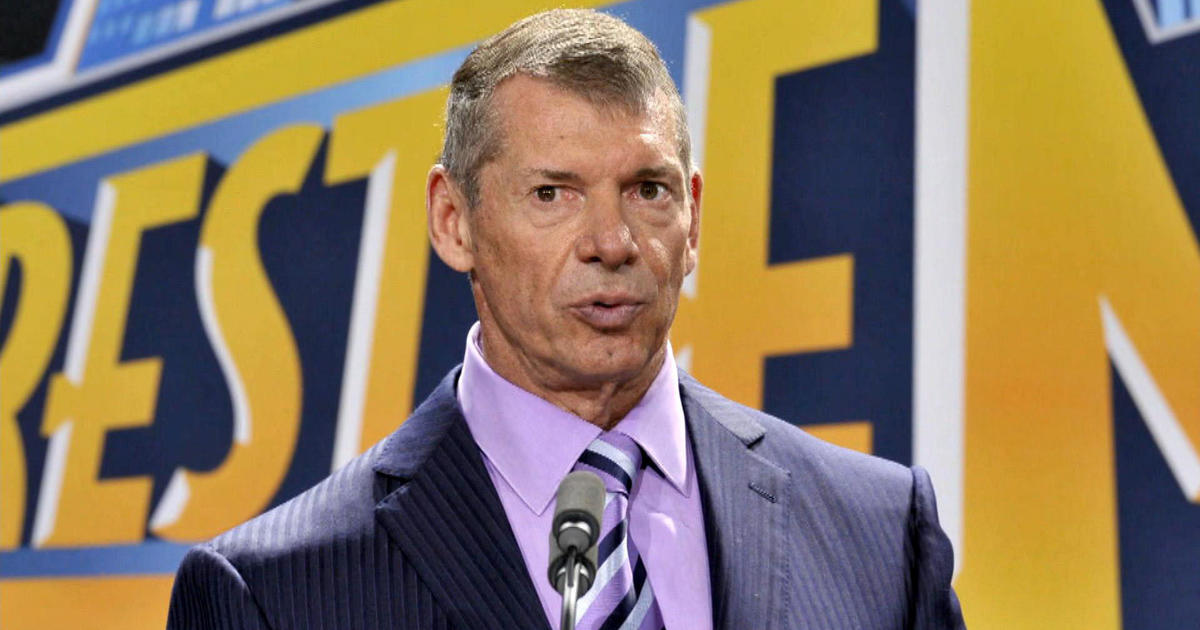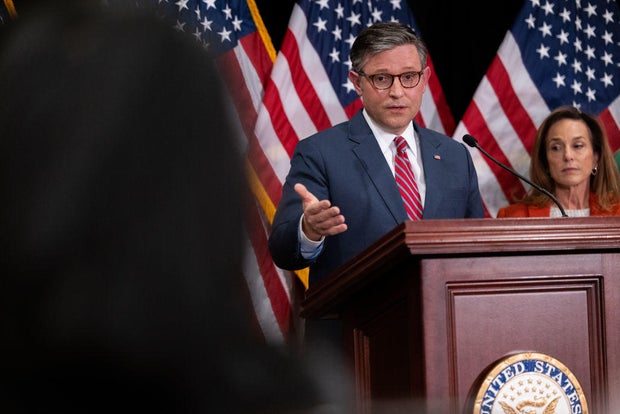CBS News
Vince McMahon resigns from WWE after allegations of sexual assault

Watch CBS News
Be the first to know
Get browser notifications for breaking news, live events, and exclusive reporting.
CBS News
Grateful Dead, 2024 Kennedy Center honorees, reflect on the band’s legacy and support from fans

Iconic rock band the Grateful Dead was named a Kennedy Center honoree earlier this year, celebrating decades of their innovation and success.
“It’s a legacy thing for me and us, I think,” drummer Mickey Hart said of the honor.
The surviving members — Bobby Weir, Bill Kreutzmann and Hart — told “CBS Mornings” the honor is not just for the band members, but for their fans.
“They kept us goin,'” Weir said.
Grateful Dead forms
The band formed in the San Francisco Bay area in the mid 1960s. Weir was 16 when he first heard Jerry Garcia playing banjo outside a music shop in Palo Alto.
“It was New Year’s Eve, basically he invited us in. We had enough fun that evening that we decided it was too much fun to walk away from,” Weir said.
Kreutzmann recalled seeing Garcia and Weir play at a club.
“I was totally blown away by Jerry’s ability to hold the audience in his hands. Jerry held the light for everybody,” he said. “That week he called me and said, ‘Hey, you wanna be in a band?’ I said, ‘Sure.'”
Kreutzmann later brought Hart into the band in 1967.
“Bill invited me to play and sit in. When I heard the band, I go, ‘Whoa.’ We all got turned on to the Grateful Dead in different ways, but we really got turned on to it,” Hart said. “We got bit.”
Garcia also recruited Phil Lesh, a classically trained musician, to play bass. Lesh, one of the band’s original members, died in October at 84 years old.
Grateful Dead’s legacy
In their 30 years as a band, the Grateful Dead scored just one Top 40 hit with “Touch of Grey,” and not a single Grammy nomination.
“We’ve had people come up to us, say, ‘You guys are never gonna make it. You play too long. You play too loud,'” Kreutzmann recalled.
But through their decades together, they built a legion of followers known as “Deadheads,” who started recording and sharing their concerts.
“You’d look from the stage and it looked like a forest of trees of microphones,” Kreutzmann said of their fans recording their concerts.
Their record company advised against allowing fans to record, but the band refused, saying they weren’t worried about piracy.
“It was the smartest thing we ever did,” Kreutzmann said.
The Grateful Dead played more than 2,300 concerts and fans recorded most of them.
“Those cassettes went out all over the world,” Hart said. “They were our archivists as well.”
When Garcia died in 1995, the band broke up after 30 years together. They weren’t sure they could find a way to carry on without their frontman.
“When Jerry left that was the end of the Grateful Dead. Period. There’s just no way that you can replace a Jerry Garcia,” Kreutzmann said.
The surviving members went off to start other projects and bands, but the Grateful Dead’s spirit would always live on. Weir said Garcia visits him in dreams from time to time, including recently.
“In the dream, Jerry comes to me and he says, ‘Listen, I’m gonna invite a song in to meet you. I want you to meet this song.’ … What that dream did was, it solidified in me the notion that, yes when we play the songs, they’re living things,” Weir said. “They come and visit our world and they come through us.”
CBS News
Lawmakers, Pentagon weigh in on East Coast drone sightings

Watch CBS News
Be the first to know
Get browser notifications for breaking news, live events, and exclusive reporting.
CBS News
What’s in the continuing resolution to avert a government shutdown? See key details from the spending bill.

Washington — Congressional leaders unveiled a stopgap measure late Thursday to keep the government funded for three months, pushing a larger funding fight into the new year.
But the 1,500 page measure, known as a continuing resolution, would do more than keep the government funded at current levels to prevent a government shutdown. The bill is laden with dozens of add-ons that make it resemble the massive end-of-year spending packages that GOP leaders have vowed to avoid.
House Speaker Mike Johnson said ahead of the measure’s release on Tuesday that it was originally intended to be “a very simple, very clean” stopgap funding measure to get the party into the new year. But the Louisiana Republican said a “couple of intervening things” occurred, and he is now left to deal with growing discontent among members of his own party.
Here are some of the bill’s major add-ons:
Disaster funding
The legislation includes $110.4 billion in disaster aid: $29 billion for FEMA’s disaster relief fund; $8 billion for federal highways and roads; $12 billion for the Community Development Block grants and disaster relief; and $3.25 billion for Tribal Assistance grants. It also replenishes the Small Business Administration’s disaster loan program with $2.2 billion. The program was exhausted in the aftermath of Hurricanes Milton and Helene earlier this year.
The measure also includes $21 billion in disaster relief for farmers and $10 billion in economic assistance for farmers, along with a one-year extension of the farm bill.
RFK stadium transfer
The legislation clears the way for a long-sought priority in Washington, D.C.: transferring administrative jurisdiction over the RFK Memorial Stadium Campus to the district, which will allow the city to negotiate the return of the Washington Commanders football team.
The Commanders currently play in Landover, Maryland, and D.C. Mayor Muriel Bowser has vowed to bring the team back to the District.
Baltimore bridge rebuilding
The measure also includes a commitment from the federal government to pay the entire cost of rebuilding Baltimore’s Francis Scott Key Bridge, which collapsed in March.
Sens. Chris Van Hollen and Ben Cardin of Maryland said in a joint statement Tuesday that the provision “will allow the bridge to be built as quickly as possible.” And they noted that federal taxpayers will be reimbursed by insurance payments and through the results of litigation against the company that operated the cargo ship that crashed into the bridge.
Nathan Posner/Anadolu via Getty Images
Pay raise for members of Congress
After more than a decade of blocking pay raises in Congress amid concern over the issue becoming a political liability, the continuing resolution includes a provision that allows an automatic cost of living increase to go into effect for lawmakers.
Since 2009, lawmakers have earned $174,000 annually, with higher salaries for some members of leadership.
Health care policy extenders and reforms
Within the legislation is a health care package that spans hundreds of pages. It takes on a number of priorities for lawmakers, from extending telehealth flexibility under Medicare to a five-year reauthorization of legislation aimed at combatting the opioid crisis and a measure to prevent pandemics. The legislation also requires pharmacy benefit managers to provide detailed data on drug spending and pass on the full amount of rebates to lower drug costs for American consumers.
Transparency in ticket and hotel prices
The funding measure also includes provisions aimed at making hotel and live-event ticket prices more transparent by prohibiting deceptive advertising. The legislation requires that ticket sellers and hotels must disclose the full price, while the ticket sellers must guarantee refunds in the event of cancellation or postponement.
Addressing drone threats
Among the legislation is a measure to counter threats from drones following a slew of mysterious drone sightings on the East Coast that have prompted concern. The legislation extends a portion of the Homeland Security Act that authorizes officials to track unmanned aircrafts and disrupt their control.
contributed to this report.








